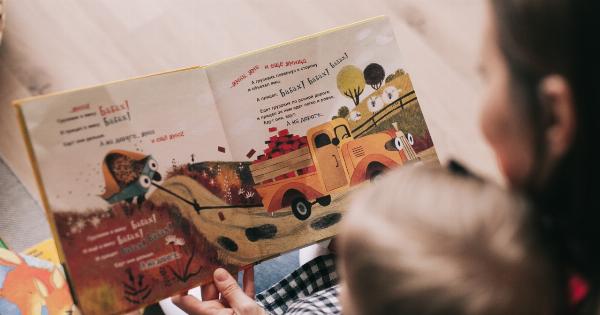Grieving the loss of a beloved pet is a deeply emotional experience for anyone, but it can have a unique impact on children. For many kids, pets are not only companions but also sources of comfort, friendship, and even identity.
When a pet dies, children may struggle with intense feelings of sadness, confusion, and even guilt. Understanding the lasting effects of pet loss on children is crucial for parents and caregivers to provide the necessary support and help them navigate this difficult time.
1. Emotional Impact
The emotional impact of pet loss on children can be profound. Just like adults, kids may experience feelings of grief, sadness, anger, and loneliness.
However, children often lack the coping skills and emotional maturity to process these emotions effectively. They might have difficulty expressing their feelings verbally and may resort to behavioral changes or acting out instead.
It’s important for parents to create a safe and open space for children to express their emotions. Encourage them to talk about their favorite memories with their pet, and validate their feelings of loss.
Additionally, providing outlets for emotional release, such as art therapy or journaling, can help children channel their grief constructively.
2. Sense of Identity
Pets play a significant role in shaping a child’s sense of identity. They often become an integral part of a child’s self-image and self-esteem. Losing a pet can lead to feelings of confusion and a temporary loss of identity for children.
They may struggle to define themselves without their furry friend by their side.
Parents can support their children by helping them explore their own sense of self outside of their relationship with their pet.
Encouraging involvement in activities that promote self-discovery and nurturing other interests can help children rebuild their sense of identity over time.
3. Understanding Death
For many children, the loss of a pet is often their first encounter with death. Understanding and coming to terms with mortality is a challenging concept at any age, and it becomes even more complex for young children.
They may have difficulty comprehending the finality of death or struggle with abstract concepts such as the loss of consciousness.
Parents should approach discussions about death with sensitivity and provide age-appropriate explanations. Using concrete language, such as “the body stopped working,” can help children grasp the concept more easily.
It’s essential to be honest and answer their questions truthfully while reassuring them that their pet is no longer in pain.
4. Development of Coping Mechanisms
Experiencing the loss of a pet can be an opportunity for children to develop essential coping mechanisms that will serve them throughout their lives.
By providing support, empathy, and guidance, parents can help children learn healthy ways to deal with grief.
Encouraging children to express their emotions, whether through artwork, storytelling, or reminiscing, allows them to explore their feelings in a safe and constructive manner.
Teaching coping skills such as deep breathing, practicing mindfulness, or engaging in physical activities can also support children in managing their grief.
5. Lessons in Life and Empathy
Experiencing the loss of a pet can offer valuable life lessons to children. Through the grieving process, they learn about the cycle of life, the importance of cherishing moments, and the inevitability of loss.
It also provides a unique opportunity to develop empathy and compassion.
Parents can encourage these lessons by involving children in rituals or memorial activities to honor their pet’s memory.
Whether planting a tree, creating a memory box, or making a donation to an animal shelter in the pet’s name, these activities can help children find solace and meaning in their loss.
6. Potential for Traumatic Reactions
While most children will experience the loss of a pet as a normal part of life, some may have more severe or traumatic reactions.
Factors such as the suddenness of the death, the child’s age, attachment level, or a previous traumatic experience can contribute to more intense emotional responses.
Parents should be aware of signs that a child’s grief has become overwhelming, such as prolonged depression, difficulty sleeping, or a significant decline in academic performance.
In such cases, seeking professional help, such as therapy or counseling, can provide the necessary support to navigate through the trauma and prevent long-term negative effects.
7. Building Resilience
While the grieving process can be difficult, it also presents an opportunity for children to build resilience. Overcoming the loss of a pet teaches them that they can endure and recover from difficult experiences in life.
It provides a foundation for coping with future losses and challenges they may face.
Parents can foster resilience by being present, offering unconditional love, and helping children identify and express their emotions.
Teaching them healthy ways to handle stress and adversity equips children with valuable skills that extend beyond pet loss and can positively impact their overall well-being.
8. Life After Loss
After the loss of a pet, children may wonder if they will ever find joy or connection with another pet again.
It’s crucial to reassure them that their hearts have plenty of love to give and that welcoming another pet into their lives does not diminish the love and memories they have for their departed friend.
Encourage children to honor their pet’s memory while remaining open to the possibility of new relationships. Assure them that every pet is unique, and a new bond can be formed while cherishing the memories of their previous pet.
9. Prolonged Effects into Adulthood
The effects of pet loss on children can extend well into adulthood. The emotional connection between a child and their pet often leaves a lasting imprint on their hearts.
Even as adults, the memory of their beloved pet can evoke strong emotions and a sense of longing.
Parents can support their children throughout their lives by creating opportunities for them to remember and honor their lost pets.
Encouraging them to share stories or participate in activities that celebrate their pet’s memory can provide comfort and a sense of closure.
10. Seeking Support
It’s essential for parents to recognize that they are not alone in supporting their child through the loss of a pet. Seeking support from friends, family, or even pet loss support groups can offer invaluable guidance and understanding.
Additionally, involving children in these support networks can help them realize that their feelings are valid and shared by others.
Connecting with individuals who have experienced similar loss can provide a sense of comfort and validation during their healing process.
Conclusion
Experiencing the loss of a pet can have a profound impact on children. From emotional turmoil to lessons in life and empathy, the effects of pet loss extend far beyond the initial grieving period.
By providing the necessary support, understanding, and encouragement, parents can help children navigate the complex emotions and develop resilience that will serve them throughout their lives.






























